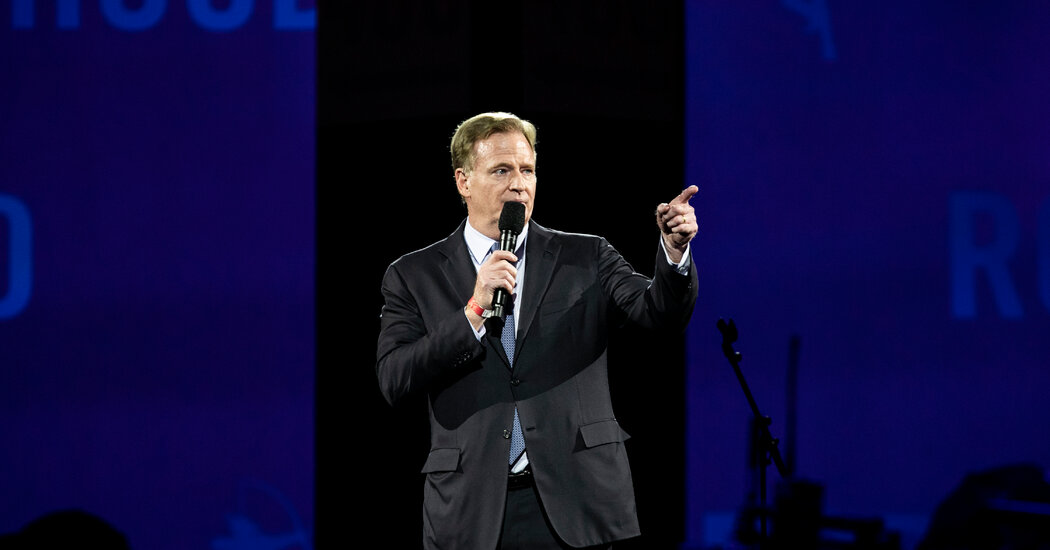
His tenure as commissioner, which began in 2006, has been punctuated by controversies and self-inflicted problems, including his handling of cases involving domestic violence, bullying and players’ protesting police brutality and inequality during the national anthem.
Goodell has also angered teams that he has penalized, most notably when he suspended star players like Tom Brady and Ezekiel Elliott. But owners understand that Goodell’s strengths help make them money, and that his institutional knowledge would be hard to replace.
Several owners said in 2017 that Goodell had told them that he would step down after his current contract ends in 2024. He may be willing to stay beyond that date, according to some media reports.
Goodell, 62, has worked at the league for nearly four decades, and has known and is known by many owners, their ancestors and their progeny. He is friendly with the leaders of the league’s broadcast partners, whose rights payments make up about half of the N.F.L.’s annual revenue, which has more than doubled since Goodell took over in 2006.
In 2010, Goodell said he wanted revenue to hit $25 billion by 2027, and thanks to the new media deals, the league appears on pace to meet that target.
For years, Goodell’s compensation, along with that of other top league officials, was included in annual filings that had to be published because the league office (unlike the teams) was a tax-exempt organization. In 2015, the league dropped its decades-old tax-exempt status after critics, including some members of Congress, argued that the government was losing millions of dollars in potential revenue.
As a result, the league no longer has to publicly disclose its tax returns, which included the salaries of its five highest-paid executives. Major League Baseball took a similar step several years before the N.F.L. By and large, awkward questions from the news media about the commissioner’s pay package disappeared.



